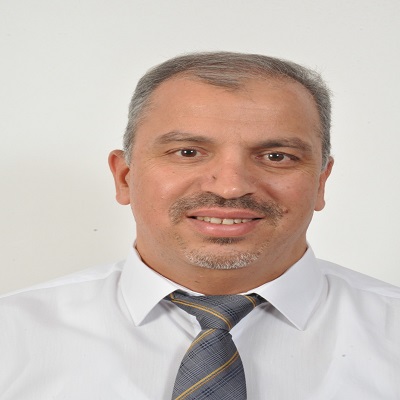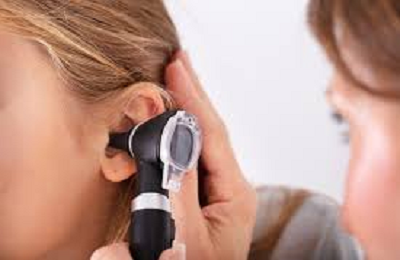Session 01: Advances in Otologic and Neurotologic Medicine
This track explores the latest breakthroughs in the diagnosis and management of auditory and vestibular disorders, including chronic otitis media, cholesteatoma, otosclerosis, and vestibular schwannoma. Sessions will focus on cutting-edge surgical interventions such as stapedectomy, ossiculoplasty, and neurotologic approaches to skull base tumors, as well as novel pharmacologic treatments and regenerative therapies targeting inner ear function.
Session 02: Rhinologic Surgery & Endoscopic Innovations
Delve into current advances in endoscopic sinus surgery, image-guided navigation, and minimally invasive approaches for sinonasal diseases and anterior skull base lesions. Topics include chronic rhinosinusitis with and without polyposis, fungal sinusitis, nasal obstruction, epistaxis control, and functional rhinoplasty. Emphasis will be placed on surgical planning, complication avoidance, and post-operative care.
Session 03: Laryngeal Disorders & Voice Rehabilitation
This track offers an in-depth examination of voice disorders, laryngeal pathology, and advances in phonosurgery and voice therapy. Key topics include vocal fold paralysis, spasmodic dysphonia, laryngeal papillomatosis, laryngopharyngeal reflux, and professional voice care. Attendees will learn about the latest in laryngeal diagnostics (e.g., videostroboscopy), surgical interventions, and multidisciplinary rehabilitation strategies.
Session 04: Pediatric ENT: Challenges & Innovations
Explore the nuances of ENT disorders in pediatric populations, from congenital anomalies (e.g., laryngomalacia, cleft palate) to acquired conditions such as recurrent otitis media and pediatric sleep apnea. This track highlights surgical and medical management strategies tailored to children, including adenoidectomy, tonsillectomy, tympanostomy tubes, and pediatric cochlear implantation, with a focus on safety and long-term outcomes.
Session 05: Head & Neck Oncology: From Diagnosis to Reconstruction
This track brings together leading oncologists, surgeons, and reconstructive specialists to address the full spectrum of head and neck cancers. Topics include oropharyngeal carcinoma, thyroid malignancies, salivary gland tumors, and HPV-related neoplasms. Emphasis will be placed on early detection, precision imaging, surgical resection, reconstructive flap techniques, and multidisciplinary oncologic care.
Session 06: Auditory Impairment & Rehabilitation
Focused on the diagnosis and treatment of hearing loss across the lifespan, this track covers sensorineural, conductive, and mixed hearing loss; auditory processing disorders; and age-related hearing decline. Sessions will highlight current standards in audiometry, bone-anchored hearing systems, assistive listening devices, and rehabilitative therapies for individuals with partial or profound hearing loss
Session 07: Sleep Disorders & Airway Management
Examine the evolving landscape of sleep-related breathing disorders, with a focus on obstructive sleep apnea (OSA), central sleep apnea, and snoring. Attendees will learn about diagnostic tools such as polysomnography, home sleep testing, and drug-induced sleep endoscopy (DISE), as well as management options including CPAP therapy, uvulopalatopharyngoplasty (UPPP), and hypoglossal nerve stimulation.
Session 08: Facial Plastic & Reconstructive Surgery
This track covers both functional and aesthetic surgery of the face, head, and neck. Topics include rhinoplasty, blepharoplasty, facial trauma reconstruction, scar revision, and treatment of congenital deformities. Emphasis will be placed on technique refinement, patient selection, complication management, and innovations in minimally invasive and endoscopic facial surgery.
Session 09: Vestibular Disorders: Diagnosis & Therapy
Gain insights into the complex evaluation and treatment of balance disorders, including benign paroxysmal positional vertigo (BPPV), Meniere’s disease, vestibular neuritis, and bilateral vestibulopathy. This track will explore advanced diagnostic tools (e.g., VEMP, vHIT, caloric testing), vestibular rehabilitation programs, and pharmacologic options to improve patient outcomes.
Session 10: Allergic Rhinitis & Upper Airway Immunology
Allergic rhinitis is a multifaceted allergic disorder driven by a coordinated network of structural, innate, and adaptive immune mechanisms. It starts with epithelial and dendritic cell activation, leading to a Th2-dominant immune response and local IgE-driven sensitization. Alarmins and ILC2s intensify this response, and impaired regulatory cell function allows chronic inflammation to persist.
Session 11: Cochlear Implants & Auditory Technologies
Focusing on technological innovation, this track explores cochlear implant candidacy, surgical techniques, programming, and long-term outcomes. It also covers hybrid devices, single-sided deafness solutions, middle ear implants, and the integration of artificial intelligence in auditory signal processing and device customization.
Session 12: Advanced ENT Surgical Techniques
Advanced ENT surgery today blends cutting-edge robotics, targeted lasers, navigational precision, and minimally invasive access to elevate patient outcomes—reducing recovery time, improving functional preservation, and advancing cosmetic results. Emerging areas like AR, regenerative medicine, and slim nanotech therapies signal even more transformative enhancements ahead.
Session 13: Minimally Invasive ENT Procedures
Explore the benefits and limitations of minimally invasive techniques in ENT, including balloon sinuplasty, endoscopic ear surgery, and sialendoscopy. Learn how these procedures reduce patient morbidity, improve recovery times, and enhance precision in both outpatient and inpatient settings.
Session 14: Speech & Swallowing Disorders
This multidisciplinary track addresses the evaluation and management of communication and deglutition disorders caused by neurologic, structural, or iatrogenic conditions. Topics include oropharyngeal dysphagia, aphasia, post-laryngectomy speech restoration, and the role of speech-language pathologists in collaborative ENT care.
Session 15: AI & Digital Innovation in ENT
Examine the role of artificial intelligence, big data, and machine learning in ENT diagnostics, surgical planning, and patient monitoring. Topics include AI-assisted endoscopy, virtual surgical simulations, tele-otolaryngology, electronic health record optimization, and mobile health applications for patient engagement.
Session 16: ENT Critical Care & Emergency Protocols
ENT Critical Care & Emergency Protocols" are comprehensive, prioritized strategies designed to manage airway life-threatening events efficiently—from immediate intervention to safe ICU transition.
Session 17: Global ENT Health & Healthcare Equity
Addressing global disparities in access to ENT care, this track explores outreach programs, surgical missions, health policy reform, and sustainable healthcare models in low- and middle-income countries. Attendees will learn strategies to promote health equity and build capacity through training, telemedicine, and global partnerships.
Session 18: Craniofacial & Skull Base Collaboration
Craniofacial and skull base surgery thrives on a collaborative multidisciplinary model—uniting diverse specialists, advanced reconstruction techniques, and cutting-edge technologies—to deliver patient-centered, high-quality care.
Session 19: Clinical Trials & Translational ENT Research
Gain exposure to the latest in ENT-focused clinical trials and translational research efforts bridging the gap between bench and bedside. Topics include regenerative medicine, gene therapy, biomaterials, immunotherapies, and evolving trial methodologies for otolaryngologic conditions.
Session 20: ENT Education & Residency Innovations
These advances are reshaping ENT residency—from mannequins to VR, from remote learning to global outreach, and from passive learning to active, leadership-centered education.
Session 21: Immunotherapy in Head & Neck Cancer
Immunotherapy has emerged as a groundbreaking treatment option in head and neck cancers, particularly in cases where traditional treatments like surgery, radiation, and chemotherapy offer limited benefit or cause significant side effects.
Session 22: Head & Neck Surgery: Complications & Care
Head and neck surgery encompasses a wide range of procedures performed for both benign and malignant conditions involving the oral cavity, pharynx, larynx, thyroid, salivary glands, skin, and skull base.
















